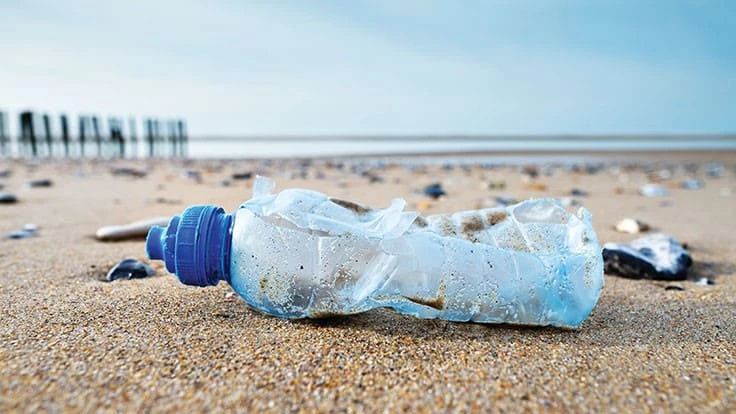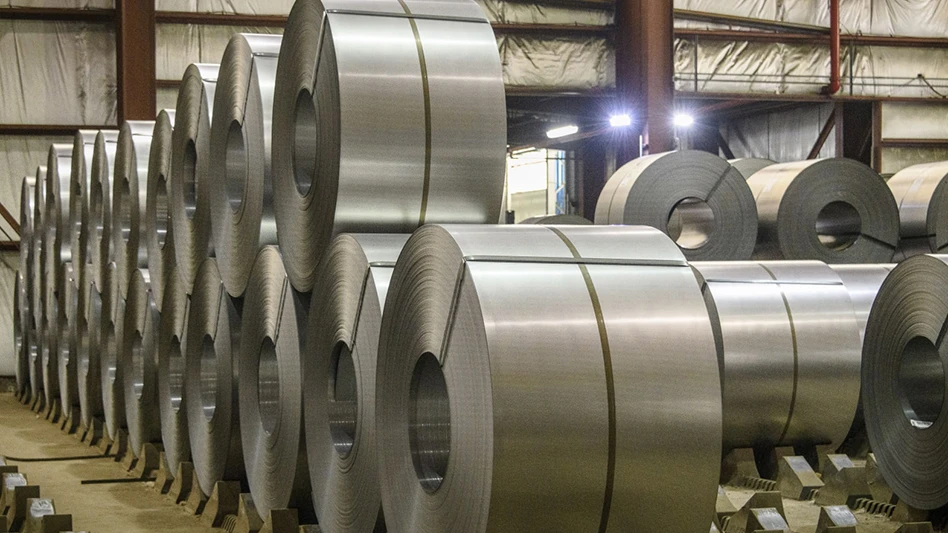
Photo by Image'in | stock.adobe.com
The Senate passed marine debris prevention legislation known as the Save Our Seas 2.0 Act Dec. 1. The bill was amended and approved by the U.S. House of Representatives in October. The legislation awaits signature from President Donald Trump.
Save Our Seas 2.0 provides states with $55 million annually through 2025 to support improvements in local postconsumer materials management, including recycling programs. An additional $10 million annually will be provided to local governments and nonprofit organizations to support projects, such as anti-litter initiatives, enforcement of local materials management ordinances and education and outreach, among other projects.
A number of recycling and plastics industry associations have voiced their support for the legislation.
The Solid Waste Association of North America (SWANA), Silver Spring, Maryland, says it urges Trump to sign the legislation and thanks U.S. Sens. Dan Sullivan, Sheldon Whitehouse and Bob Menendez for their leadership.
In a news release about the legislation’s passage, SWANA says it “strongly supported the Save Our Seas 2.0 Act, which improves the domestic response to marine debris, incentivizes international engagement to address marine debris and helps strengthen infrastructure to prevent the creation of new marine debris.”
The association adds, “With China set to ban imported recyclables and scrap completely in less than a month, and an amendment to the Basel Convention taking effect in 2021 that will limit export options for discarded plastics, Congress’ action was both timely and necessary.”
The Plastics Industry Association (Plastics), Washington, also supports the legislation, which it says will improve domestic infrastructure to reduce marine debris, further research into detection and cleanup and enhance international cooperation to solve the problem.
“Our industry is proud to work with federal legislators to protect the environment,” Tony Radoszewski, president and CEO of Plastics, says. “We've worked years to help pass the original Save Our Seas Act, including this latest improvement, and we look forward to more cooperation.”
The association says it supports a variety of federal legislation to educate consumers about the value of plastic, including legislation that promotes reusing, repurposing and recycling this valuable material.
Joshua Baca, vice president of the American Chemistry Council’s Plastics Division, also based in Washington, says of the legislation: “America's plastic makers welcome final passage of the Save our Seas 2.0 Act and the bipartisan approach taken by Sens. Sullivan, Whitehouse and Menendez. We strongly support the legislation being signed into law.
“The Save Our Seas 2.0 Act supports scientists and agencies in researching innovative ways to repurpose used plastics, including for infrastructure projects, such as roads and bridges, and development of a mass balance certification system for recycled content creating circular polymers,” he continues.
Baca adds, “Additionally, the legislation creates a revolving fund to strengthen our domestic recycling infrastructure. Earlier this year, ACC signed a Memorandum of Understanding with the Department of Energy to support innovations in plastics recycling and recovery technologies that strengthen domestic supply chains while improving economic and environmental outcomes. Across the U.S., there have been 64 announced projects in mechanical and advanced recycling valued at $5.3 billion. Together, these projects have the potential to divert more than 4 million metric tons (approximately 8.9 billion pounds) of waste from landfills each year.”
Latest from Recycling Today
- Magnomer joins Canada Plastics Pact
- Electra names new CFO
- WM of Pennsylvania awarded RNG vehicle funding
- Nucor receives West Virginia funding assist
- Ferrous market ends 2024 in familiar rut
- Aqua Metals secures $1.5M loan, reports operational strides
- AF&PA urges veto of NY bill
- Aluminum Association includes recycling among 2025 policy priorities





